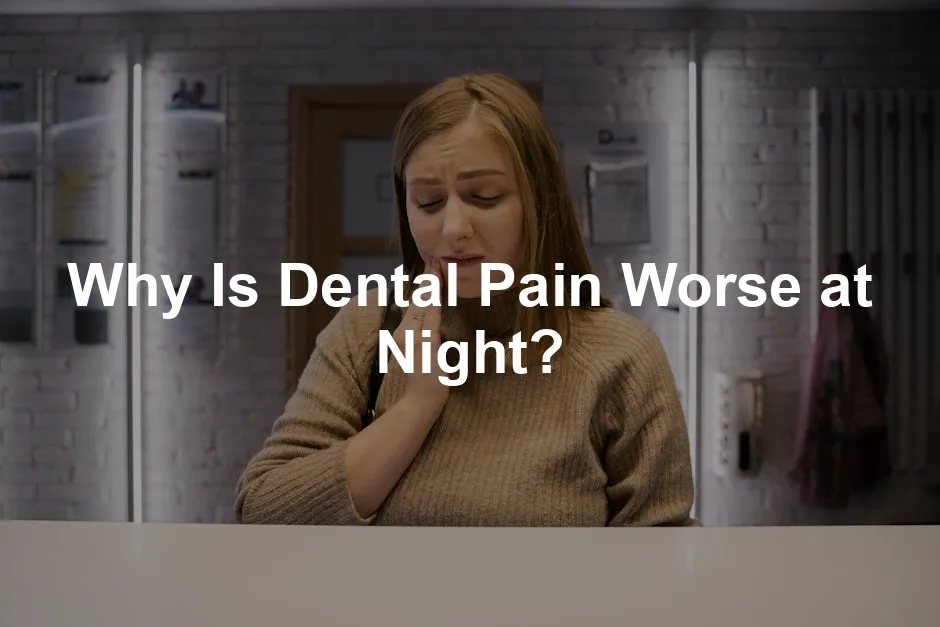
Why Is Dental Pain Worse at Night?
Introduction
Dental pain can feel especially intense at night. Many people experience this discomfort, often leading to sleepless nights. Understanding why dental pain worsens during these hours is crucial for effective management. In this article, we will look at the factors that contribute to increased dental pain at night and share tips to help alleviate it.
Summary and Overview
Nighttime dental pain can stem from various causes. Increased blood circulation when lying down can heighten sensitivity, making pain more noticeable. Fewer distractions at night can cause discomfort to feel more pronounced as daily activities fade away. Additionally, habits like teeth grinding can exacerbate pain levels. Poor oral hygiene or late-night snacking can also contribute to heightened discomfort. If you find yourself struggling with persistent pain, seeking professional dental care is essential. Understanding these factors can empower you to better manage your nighttime toothaches and seek help when necessary.
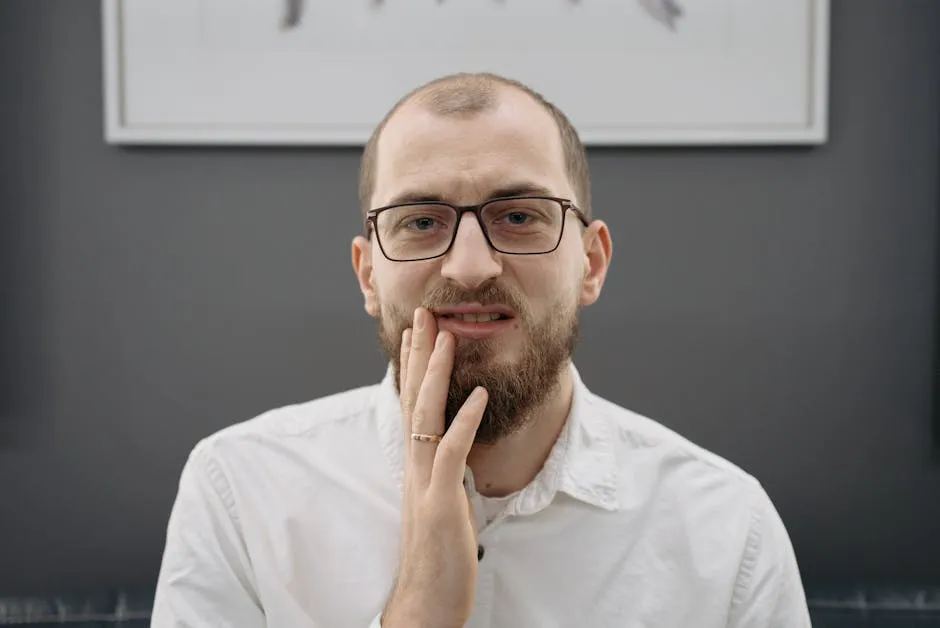
To keep your teeth in top shape and reduce pain, consider using the Oral-B Pro 1000 Electric Toothbrush. With its superior cleaning action, it helps prevent cavities and gum disease, ensuring your mouth stays healthy and pain-free.
If you experience issues with teeth grinding, consider learning more about why certain individuals are more prone to teeth grinding at night.
Understanding Dental Pain
What Is Dental Pain?
Dental pain refers to any discomfort in or around a tooth. It can manifest in various ways, such as sharp, throbbing, constant, or intermittent sensations. Sharp pain often signals decay or injury, while throbbing may indicate inflammation. Constant pain could suggest an abscess or nerve issue, and intermittent pain may arise from minor irritations. This discomfort can disrupt daily life, making it challenging to focus or enjoy activities. Sleep is often affected, as pain can feel more intense when lying down. Understanding these nuances can help you identify when to seek dental care.
Common Causes of Dental Pain
Dental pain can arise from several common issues. Cavities, or tooth decay, often lead to sharp pain when they reach the inner pulp. Gum disease, caused by plaque buildup, can result in swelling and discomfort. Tooth fractures may cause throbbing pain due to exposed nerves. Additionally, dental abscesses can lead to severe pain and swelling. Each of these conditions can worsen at night. This is often due to increased blood flow and reduced distractions, making you more aware of the pain. Ignoring these issues can lead to further complications, so it’s essential to seek help.

For added protection against cavities, consider using Crest 3D Whitestrips Professional Effects. These strips not only whiten your teeth but also help remove surface stains, ensuring your smile stays bright and healthy.
Why Does Dental Pain Worsen at Night?
Increased Blood Flow
When you lie down at night, blood flow to your head increases. This can intensify dental pain, especially in sensitive areas. The pressure builds up, making discomfort more noticeable. If you have an existing issue, like a cavity or gum disease, this additional blood flow can exacerbate the pain. You may feel this throbbing sensation more acutely when resting, leading to a restless night.

Fewer Distractions
At night, the world quiets down, and distractions fade away. This calm atmosphere allows you to focus on your body’s sensations, including pain. During the day, you might overlook mild discomfort due to busy activities. However, as you settle down for the night, that nagging toothache can become much more pronounced. This heightened awareness makes it harder to ignore the discomfort, leaving you restless and searching for relief.

Teeth Grinding (Bruxism)
Bruxism is the involuntary grinding of teeth. Many people do this while they sleep, often without realizing it. This condition can lead to soreness and increased pressure on your teeth and gums. When grinding occurs, it can exacerbate existing dental issues, causing sharp pain or discomfort. You might wake up with a throbbing jaw or sensitive teeth. A night guard can help protect your teeth and reduce pain caused by this nighttime habit. If you suspect bruxism, consult your dentist for appropriate solutions. Check out the Nite Guard Nighttime Teeth Grinding Mouth Guard for a comfortable and effective solution.
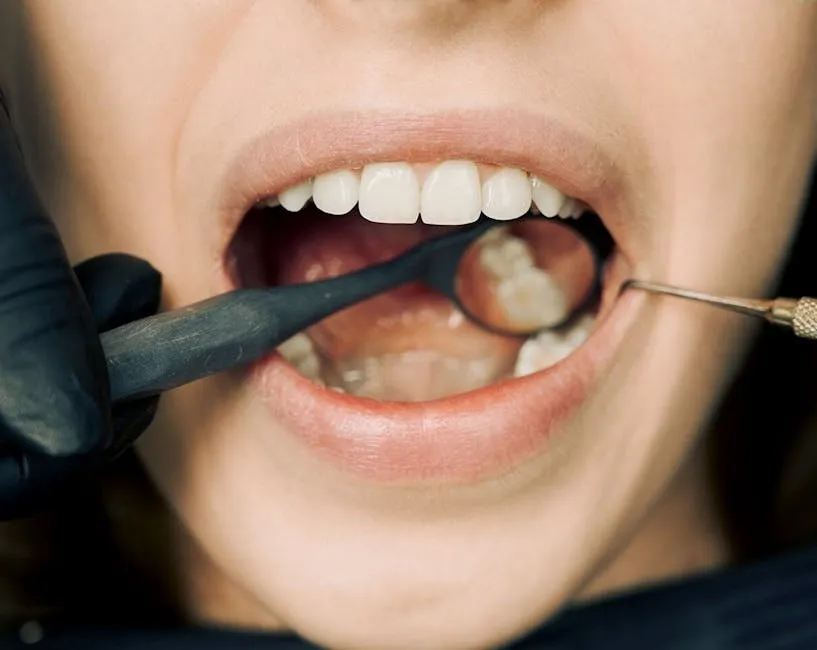
If you’re considering professional help for bruxism, read about why seeking professional help is crucial for managing bruxism in the coming months.
Nighttime Eating Habits
Eating sugary or acidic foods before bed can worsen dental pain. These food choices can lead to plaque buildup, increasing the risk of cavities. When you consume these foods, they often linger in your mouth, creating an environment for bacteria to thrive. If you neglect to brush your teeth afterward, this can aggravate any existing discomfort. Maintaining good oral hygiene is essential after late-night snacking to minimize dental pain. Remember to brush and floss before hitting the pillow to protect your smile. For a gentle touch, consider Colgate Total Whitening Toothpaste for an effective clean.

Other Factors
Several other factors can contribute to heightened dental pain at night. Sinus pressure from allergies or infections may cause discomfort in your upper teeth. Additionally, underlying health conditions, such as arthritis, can lead to jaw pain that worsens during the night. Stress and anxiety can also heighten sensitivity and make you more aware of discomfort. If you experience persistent pain, consider these factors and consult a healthcare professional for a comprehensive evaluation. Understanding these influences can help you find effective relief.
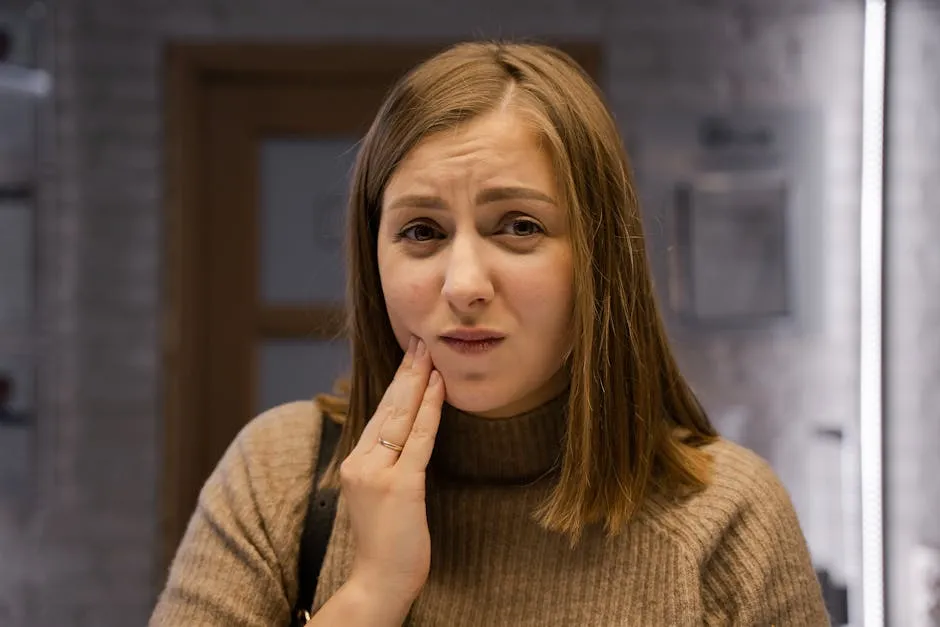
Tips for Managing Nighttime Dental Pain
Home Remedies
Managing nighttime dental pain can be tough, but several home remedies offer relief. Start with a cold compress. Apply it to your cheek near the painful area for 15-20 minutes. This helps reduce swelling and numbs the pain. A warm saltwater rinse can also be effective. Mix one teaspoon of salt in a glass of warm water and swish it around your mouth. This solution acts as a natural antibacterial agent, promoting healing. Over-the-counter pain relievers, like ibuprofen or acetaminophen, can provide temporary relief. Always follow the recommended dosage on the package. Lastly, consider elevating your head with an extra pillow while you sleep. This can help reduce blood flow to your head, alleviating pressure and discomfort. And for those sleepless nights, try ZzzQuil Nighttime Sleep Aid Liquid to help you drift off into a peaceful slumber.
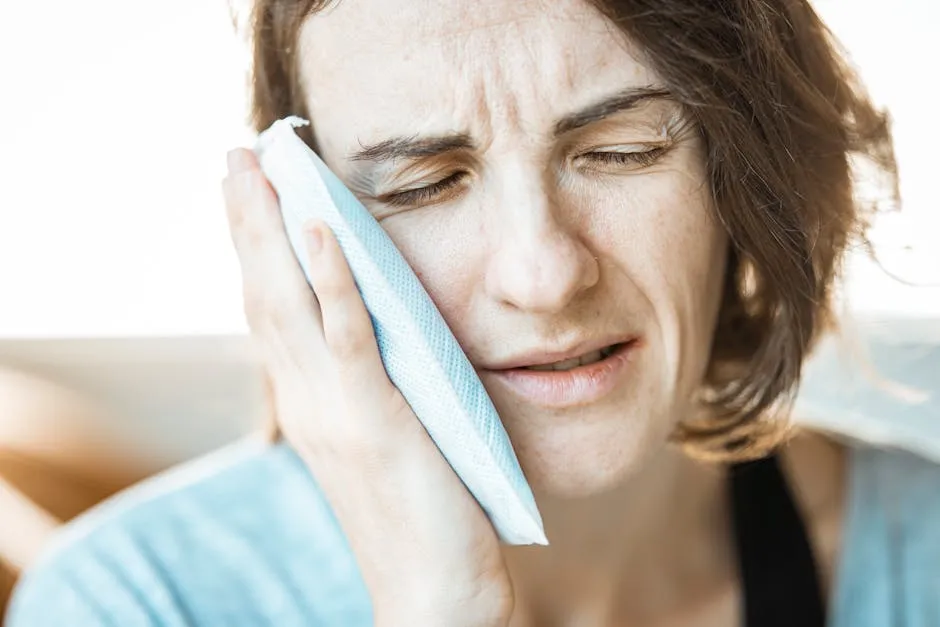
For those recovering from dental procedures, it’s important to know why no ibuprofen after tooth extraction is recommended.
When to Seek Professional Help
Not all dental pain can be managed at home. If your pain persists for more than a couple of days, it’s time to consult a dentist. You should seek help immediately if you notice swelling, fever, or severe discomfort. These symptoms may indicate an infection or a more serious dental issue, such as an abscess. Early intervention can prevent complications and provide quicker relief. Don’t ignore the signs; addressing dental problems sooner can save you from more painful procedures later. Remember, your oral health is essential, and timely care is crucial for long-term wellness.

Conclusion
Dental pain often worsens at night due to factors like increased blood flow, fewer distractions, and habits like teeth grinding. Understanding these reasons allows you to take proactive measures for managing pain. Home remedies, such as cold compresses and saltwater rinses, can provide temporary relief. However, persistent pain should not be ignored. Always consult a dentist if discomfort continues or worsens. Taking care of your dental health today can lead to better nights and brighter smiles tomorrow. If you’ve experienced nighttime dental pain, share your experiences in the comments or consult your dentist for tailored advice. And remember to keep your mouth fresh with Listerine Cool Mint Antiseptic Mouthwash for that extra zing!

FAQs
Why does my tooth hurt more at night than during the day?
Many people notice increased tooth pain at night. One reason is increased blood flow to the head when lying down. This extra blood can cause pressure in sensitive areas, making pain feel sharper. During the day, you’re often distracted by activities, which can mask mild discomfort. At night, with fewer distractions, you’re more aware of the pain, making it seem worse.
What can I do to relieve a toothache at night?
Relieving a nighttime toothache can be challenging but manageable. Start with over-the-counter pain relievers like ibuprofen. Applying a cold compress to the affected area can also reduce swelling. Rinsing with warm salt water is another effective remedy; it helps cleanse the mouth and soothe inflamed gums. Keeping your head elevated while sleeping may lessen pressure and improve comfort.
When should I see a dentist for my toothache?
Knowing when to see a dentist is crucial. If your toothache persists for more than a couple of days, it’s time to seek help. Additionally, look for signs of swelling, fever, or severe discomfort. If you experience these symptoms, you might have an infection or dental emergency. Prompt treatment can prevent complications and ensure your dental health.
Can teeth grinding cause tooth pain at night?
Yes, teeth grinding, or bruxism, can lead to significant pain. Many people grind their teeth unconsciously during sleep. This pressure can cause discomfort in the teeth and jaw. Over time, it may wear down enamel, leading to further issues. If you suspect bruxism, consider talking to your dentist about a custom night guard to protect your teeth while you sleep.
How can late-night eating affect dental pain?
Late-night eating can negatively impact your dental health. Consuming sugary or acidic foods before bed can lead to tooth sensitivity. If food particles linger, they invite bacteria to thrive, increasing the risk of cavities. This can lead to pain that feels more pronounced at night. Always practice good oral hygiene, brushing and flossing after nighttime snacks to minimize potential issues.
Please let us know what you think about our content by leaving a comment down below!
Thank you for reading till here 🙂 And for those looking to unwind after a long day, consider brewing a cup of Herbal Tea for Relaxation to help soothe your mind and body before bed!
All images from Pexels




